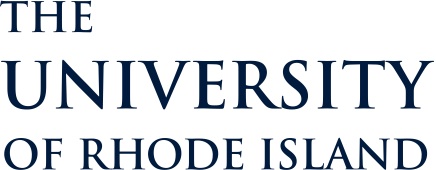Newswise — At the University of Rhode Island, it's not just the swim team that hits the pool regularly for workouts. Soon there will be a team of Rhody mice swimming laps in the name of research.
The laboratory mice will be exercising to help Frederick Vetter, a URI assistant professor of biomedical engineering, discover the mechanisms involved when regular exercise leads to growth of the heart. He will ultimately apply what he learns from the swimming mice to understand abnormal heart growth caused by disease.
Vetter was recently awarded a $400,000 grant from the National Science Foundation through its Faculty Early Career Development Program, one of the foundation's most prestigious awards in support of the early career-development activities of those scholars who are most likely to become the academic leaders of the 21st century. He joins Scott McWilliams and David Chelidze as the only URI faculty to have received this distinguished award since the program was established 10 years ago.
"It's a real honor to have been selected to receive this grant," said Vetter, a resident of South Kingstown. "I hope this award will bring some visibility and recognition to URI's biomedical engineering research and undergraduate program."
Vetter, who joined the URI faculty in 2002, founded the University's Cardiac Engineering Laboratory where he studies heart function using computer and experimental models. As part of this new research, he will build a computer model of a mouse heart so he can study growth in the heart, a condition called cardiac hypertrophy. "The model will allow us to predict what we cannot measure in experiments," the URI researcher said.
According to Vetter, the goal of the project is to determine which mechanical factors in the heart are the major regulators of normal growth. "If we can determine what drives the growth in a healthy heart, we can then apply that knowledge to better understand the process in diseased hearts," he said.
Hearts become enlarged for one of two reasons. In diseased hearts, abnormal growth compensates for increased demands caused by high blood pressure, old age or congestive heart failure. Healthy hearts, especially in athletes, enlarge normally due to extensive exercise.
Mice are the typical models used by medical researchers studying heart disease. "We use mice because they are our simplest cardiovascular model of humans. Elsewhere, mice have been genetically engineered to develop heart disease, but we need to exercise normal mice to analyze how their hearts grow over time," Vetter explained.
He plans to have his mice complete a strict swimming regimen in a sink of warm water for 30 minutes a day. After six weeks, he expects their hearts will have enlarged by 30 to 40 percent.
In a second component of his National Science Foundation grant, Vetter will work with a group of students from Hope High School in Providence on a series of engineering activities aimed at motivating the students to pursue careers in science, mathematics or engineering. The weekly workshops will demonstrate how science, math and engineering principles are applied to the study of heart function.
The University of Rhode Island is the only public university in New England that offers an academic program in biomedical engineering, and interest in the program is growing tremendously.
"The federal government predicts a 26 percent growth in biomedical engineering jobs over the next 10 years, so the timing is right for growth in our program," Vetter said.
